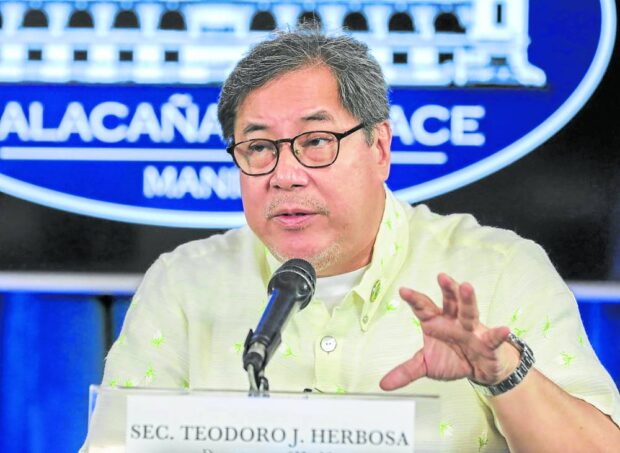
Health Secretary Teodoro Herbosa —MALACAÑANG FILE PHOTO
The Department of Health (DOH) on Wednesday allayed fears of a surge in respiratory illnesses in the country and assured the health-care system is ready should there be a sudden rise in such infections.
“I want to tell the people: Don’t be worried. We’re doing our own surveillance. In the Philippines, there’s been no reported rise of respiratory illnesses,” Health Secretary Teodoro Herbosa said.
He added hospitals are ready and capable to detect any looming increase.
“We can activate immediately, the same way we activated [them] during the COVID-19 [pandemic],” he said.
Lower infections
Based on the latest DOH data, the country logged lower influenza-like illness (ILI) infections with 10,242 cases reported in the past month. This was a 20-percent decrease from the past two weeks.
However, overall ILI cases in the country stood at 182,721 from Jan. 1 to Nov. 11 this year. The number is 51 percent higher than the 121,160 cases reported in the same period in 2022.
The health department, however, noted the ILI infections are “expected to rise again by the start of January.”
Herbosa urged the public to practice “cough etiquette” and “stay at home” if experiencing flu-like symptoms.
READ: DOH: Pneumonia cases up, better keep mask on
Clusters of illnesses
The health chief issued this reminder following the reported clusters of respiratory illnesses, including pneumonia, in northern China.
Citing the Chinese Center for Disease Control and Prevention, the DOH said “no unusual or novel new pathogens and no changes in disease presentation were observed” in the reported cases in China.
Last week, the World Health Organization (WHO) said it was able to meet with Chinese health officials through a teleconference.
The requested data indicated “an increase in outpatient consultations and hospital admissions of children due to Mycoplasma pneumoniae since May, and respiratory syncytial virus, adenovirus and influenza virus since October.”
Mycoplasma pneumoniae is a common bacterial infection that typically affects the younger population.
“Given these findings, WHO recommended that general preventive measures against respiratory illness should be practiced, but no specific measures for travelers and border controls are recommended at this time,” the DOH said.